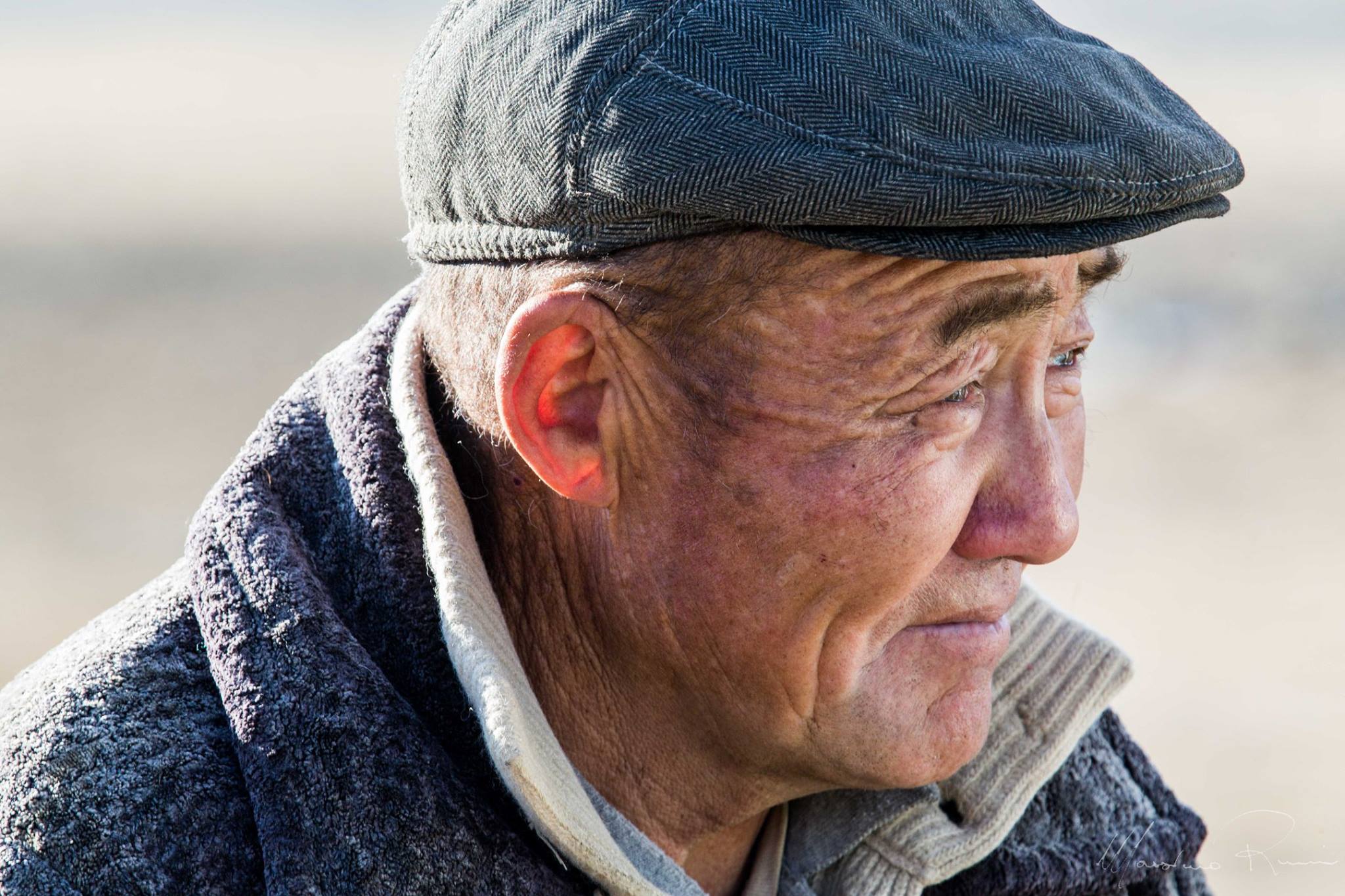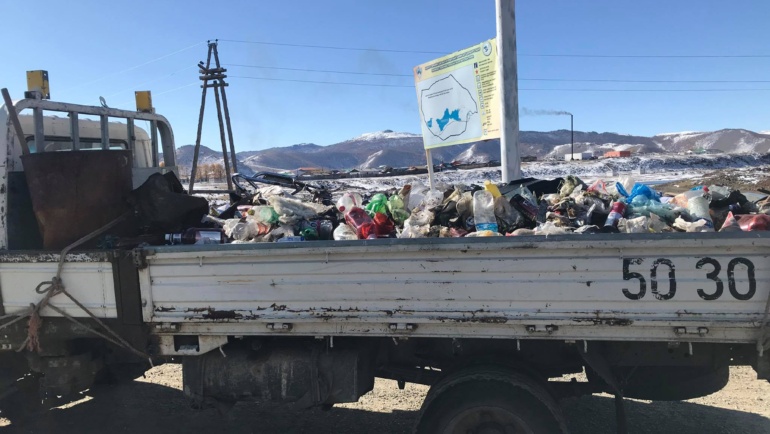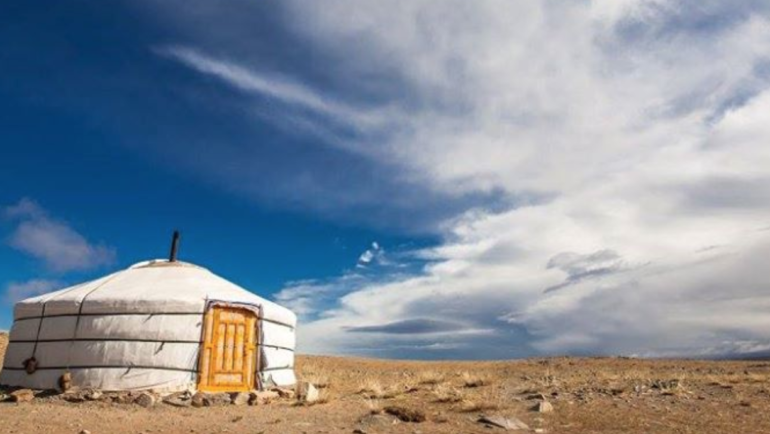Let Me Introduce You to Dakhar
Dakhar calls the Tsambagarav Uul National Park his home. High above the provincial borders of Khovd and Bayan-Olgii Aimag in western Mongolia, this snow-capped peak stands tall at 4208m, surrounded by vast open valleys. It’s part of the magnificent Mongol Altai Mountain Range, and it’s where Dakhar has lived a life full of freedom, independence, and connection to nature.
Dakhar is Kazakh, and for many years, he was a Kazakh eagle hunter. He didn’t want to stop hunting with his eagle, but the ache of arthritis in his bones made it harder for him to climb on and off his horse and hold his eagle. Despite this, he still herds the livestock with his son and daughter-in-law, remaining connected to his family’s way of life and the freedom that comes with it.
When we shifted to asking about more immersive, hands-on activities—like joining in the milking of the animals, collecting dung or wood, learning to make felt, or riding with him to visit the herd—Dakhar agreed but reminded us of something important: “Guests need to understand that herders have a different attitude towards time.” This resonated with me, as I’ve seen it firsthand: once the initial curiosity from the family is satisfied, guests are often encouraged to get on with their day and allow the family to continue with their work.
This moment shaped how I approach our itineraries for experiences like this. Instead of tightly scheduling every day of a homestay or trip, including places like Tsambagarav, I now leave those days blank. We describe these experiences as flexible—the plan is entirely in the hands of your hosts. This allows for a more natural, organic Mongolian (or Kazakh!) experience. It’s not about planning every hour; it’s about embracing the unpredictability of life in rural Mongolia.
Admittedly, this approach isn’t for everyone. It doesn’t lend itself to bucket-list tourism, where expectations of an idealized experience are set in stone. But I believe it’s time we stop comparing experiences, stop thinking about tourism as a checklist, and focus on the real, unfiltered encounters that happen when we simply let go.
The rural families we partner with are not tourist installations or entertainment sources. They are real people leading real lives, just like us. In the midst of pressures, hard work, and daily struggles, they might not always want to entertain visitors. They might be tired, frustrated, or simply want to get on with the day without having to perform for anyone. And that’s okay. They deserve that time to themselves.
Sometimes, both tour operators and visitors alike fear the empty time—the moments that don’t have a clear purpose. Maybe it’s because we fear it’s a wasted opportunity, or that expectations won’t be met. I’ll admit, I still battle with this myself. As a small business in a competitive industry, how we word our itineraries can be the deciding factor in attracting bookings. But I believe that by not dictating every moment of a homestay or experience, we show more respect for the local culture. It leads to a more meaningful, sustainable travel experience.
No, we still don’t have a pre-packaged trekking itinerary for Tsambagarav, and I don’t think we ever will. But what we do have is a genuine friendship with Dakhar and his family. And with Dakhar’s deep knowledge of the land, we can provide an authentic experience for anyone who wants to explore the wilds of Tsambagarav further. Until then, we’ll continue to enjoy the quiet companionship under the vast, open sky of Tsambagarav—no plans necessary.
Learn more here about our philosophy – https://www.eternal-landscapes.co.uk/in-praise-of-the-slow-travel-movement-making-a-connection-in-mongolia/
Learn more here about our tour experiences in Mongolia – https://www.eternal-landscapes.co.uk/mongolia-tours/


